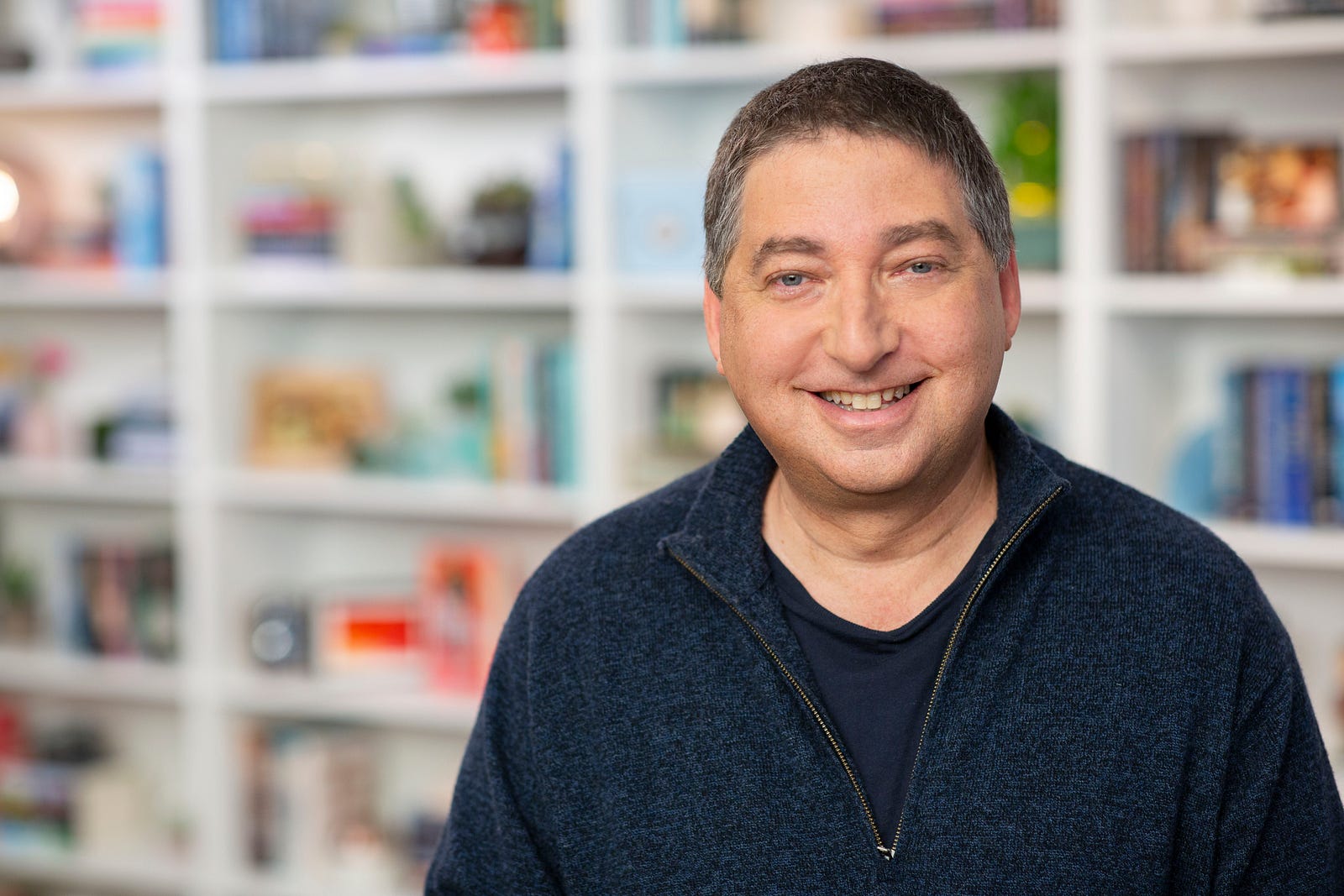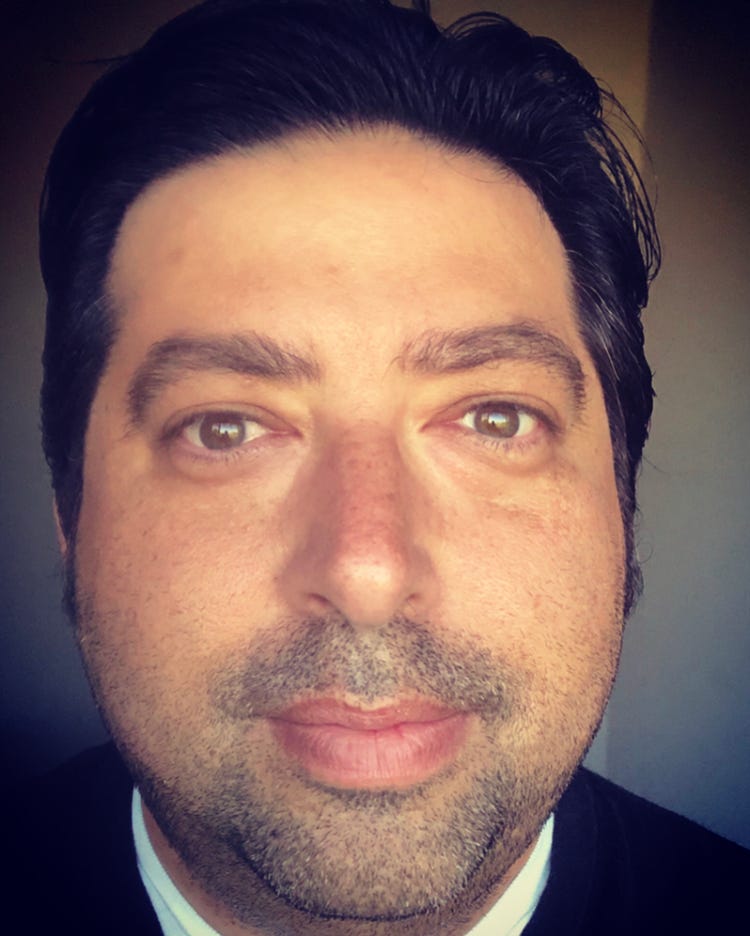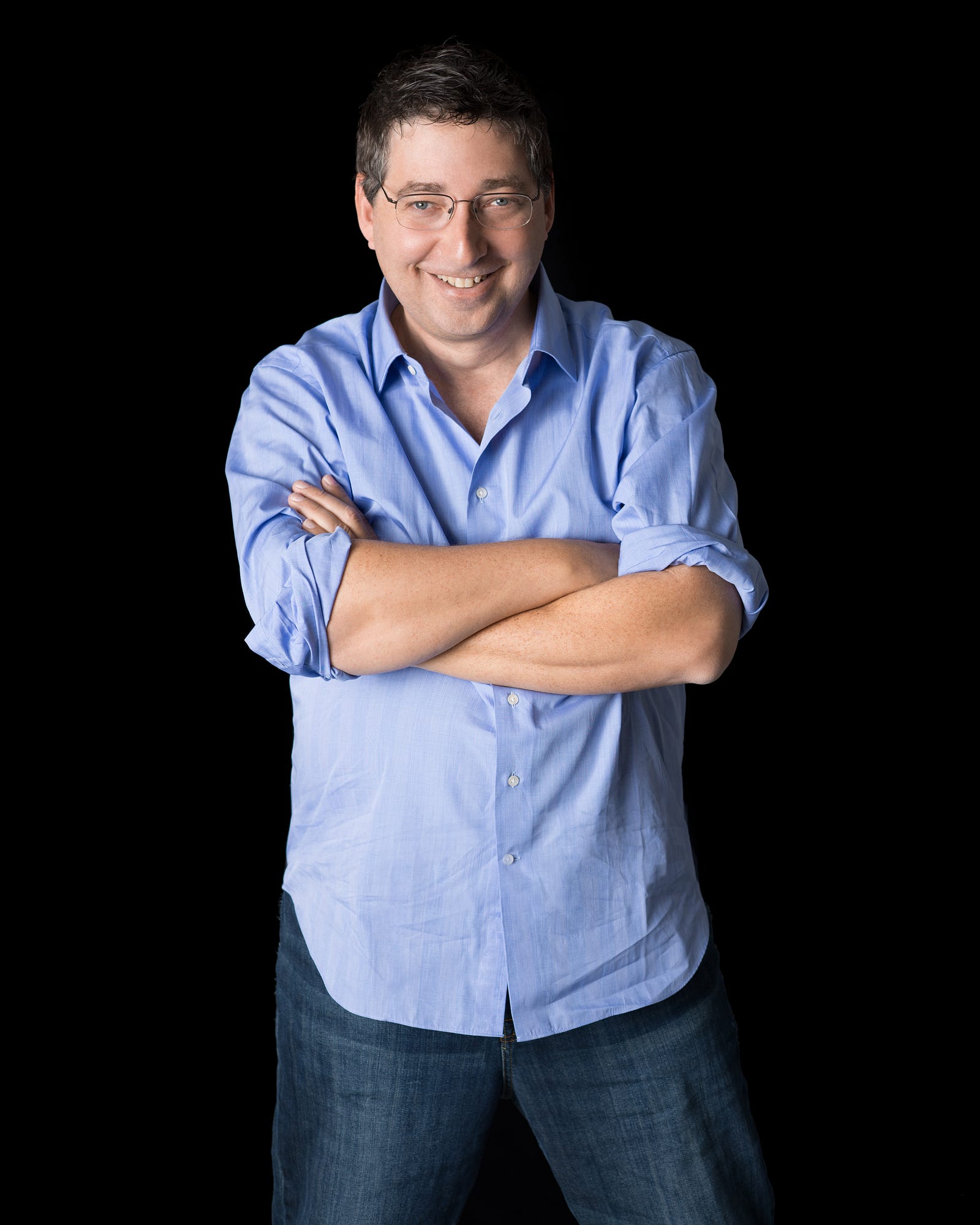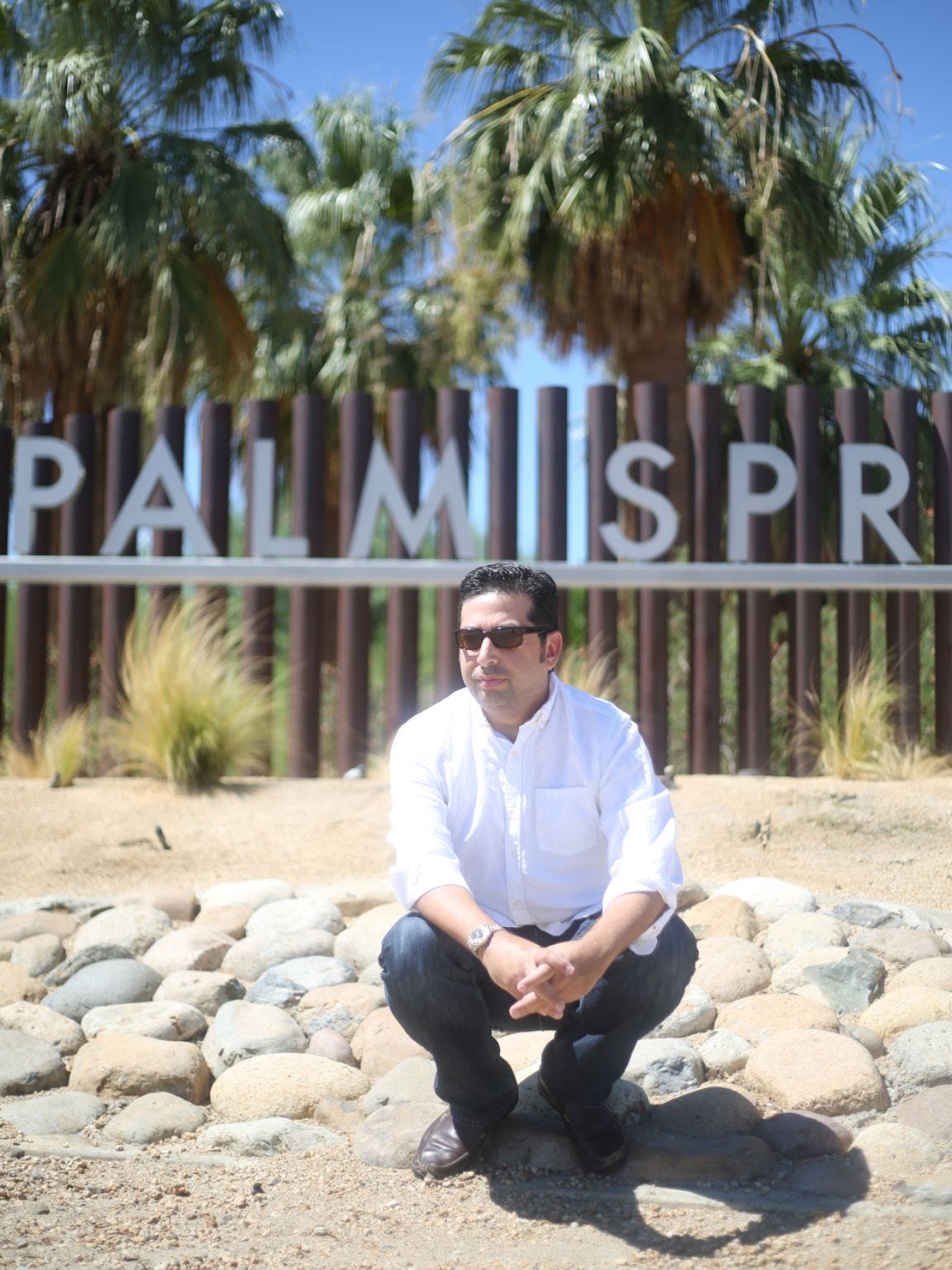Don’t let the highs be too high and don’t let the lows be too low. Success and rejection are close siblings to you and neither love you any less. They just have a funny way of expressing that love.

As part of my series on the “5 Things You Need To Know To Write A Bestselling Book,” I had the pleasure of interviewing brothers Lee Goldberg, #1 New York Times bestselling author and TV producer and Tod Goldberg, New York Times, national and international bestselling author.
Bestselling authors and brothers Lee and Tod Goldberg don’t write together, but they’ve both hit The New York Times Best-Sellers list and many others, including USA Today, The Washington Postand Publishers Weekly with their crime novels. Lee’s book, The Pursuit, co-authored with Janet Evanovich, hit #1 on The New York Times Best-Sellers list the same week that Tod’s book, The House of Secrets, co-written with Brad Meltzer, hit #6.
Lee is a five-time New York Times bestselling author and TV producer. His book, True Fiction, spent 14 straight days as the #1 bestselling book on Amazon in March 2018 and was a Washington Post bestseller. Lee co-created the Hallmark movie series Mystery 101and his writing and/or producing credits include Hunter, Diagnosis Murder, Seaquest and Monk.
Tod is The New York Times, The Washington Post and USA Today bestselling author of over a dozen novels, including Gangsterland, a finalist for the Hammett Prize; Living Dead Girl, a Los Angeles Times Book Prize finalist and Gangster Nation, a finalist for the International Thriller of the Year Award. Tod founded and directs the Low Residence MFA Program in Creative Writing and Writing for the Performing Arts at University of California, Riverside and co-hosts Literary Disco, recently named one of the best literary podcasts by the Washington Post.
Thank you so much for joining us! Can you share a story about what brought you to this particular career path?
Lee Goldberg (Lee): It was inevitable. I’ve always loved to read and my parents, who also loved to read, were both in the media. My father was a TV anchorman and my mom was a model/socialite who leveraged her “fame” into becoming a society editor for several newspapers. My parents divorced when I was nine years old. I dealt with that by losing myself in books and writing “novels” that I shared with my friends. Some years later, my mom traveled to Santa Barbara and a storm prevented her from flying home in time to file her column. She called me and told me to sneak into the newspaper late at night, find her notes and write her column for her. I did and the column was published the next day. Nobody noticed the difference. When she got back, I told her that her job was easy and anybody with a year of high school could it. Instead of being offended, she started going on vacations and leaving me her notes to write her columns for her while she was away. I resented the hell out of it at the time but now I realize she taught me three valuable skills that have served me well, which are how to write on a deadline, how to write in someone else’s voice and how to write from a woman’s point of view.
Tod Goldberg (Tod): The truth is, not being able to read or write for the first eight or nine years of my life forced me to tell stories in my head long before I put them on paper. I was profoundly dyslexic as a child. Until I was about 10 years old, most people I went to school with probably thought my name was Dot — but I loved stories. At first, I would use my toys to tell stories. I vividly recall lining up hundreds of army men on my bed and giving them each a name and a story. As I would act out their fight, I was focusing on individual army men and essentially drilling down into their minds and imagining their lives. This sounds a bit obsessive in retrospect but it was a healthy obsession on my part. Once I was able to read, I was lucky enough to have a brother like Lee, who is nine years older than me, and he took it upon himself to educate me in the ways of murder fiction. He gave me bags of classic (and not so classic) crime novels to read, so my young adult reading list included Elmore Leonard, Donald Westlake, Lawrence Block and Robert B. Parker. Pretty soon after that, I started writing my own crime fiction.
But the real turning point for me was a high school teacher named Kathy Caine, who pulled me aside one day in my junior year and told me that every time she assigned a book report in class, I was to write a short story. By that point, she told me, I already knew Ivanhoe and The Great Gatsbybetter than she did. It was the first time I felt like my fiction meant something to someone other than a family member. That was an important validation.

What was (so far) the most exhilarating or fulfilling experience you’ve had as an author?
Lee: I’ve been told many times by people grieving over the death of a loved one or going through horrible medical experiences — like chemotherapy or recovering from a devastating accident — that reading my books took them away from their pain and made them laugh. It brings tears to my eyes every time I get one of those emails or someone pulls me aside to share their story.
Tod: I suppose there are two. The first is that I wrote an essay, When They Let Them Bleed, that was selected for Best American Essays 2013.It was about witnessing a death when I was a child but also about the somewhat traumatic childhood I’d had. Every week, I receive a message about it from a stranger. Sometimes I’ll get 10 emails about it. But every week, at least one, for the last several years. And they say the same thing: That the essay made them feel less alone in the world, that they’d always thought they were the only people who felt a certain way, but that finding my piece had made them feel understood. It’s hard to share painful things about yourself for the world to dissect but when you get messages like those back from the universe, you recognize that literature has such restorative power.
The second thing is more simple. As the founder and director of an MFA program in creative writing, the profound success of my students fills me with such immense pride that I’m frequently brought to tears. The future of literature is exceptionally bright.
What was the craziest, weirdest, wildest experience you’ve had as a bestselling author?
Lee: It’s what people say to me at events. Recently, a woman came up to me at a conference and said, “I love your books.”
“Thank you,” I replied.
“They are so relaxing,” she said. “And they really help my digestion.”
Another woman asked me, “Did you have to sleep with a lot of people to become a bestselling author?”
“Just my wife,” I said.
“You were lucky it wasn’t someone else,” she said and walked away.
I could go on and on with stories like this but I can always count on getting a bunch of fresh anecdotes whenever I go on tour for a new book or speak at an event.
Tod: Being on tour is always an odd experience, as Lee notes. Fans give me odd things. I recently received a box of cookies with my face on them. I didn’t know if I should eat them, if there was some bad juju associated with that, but they were shortbread and I do love shortbread. Invariably, the weirdest things involve unexpected moments of kindness, like when my first book came out in 2000 and I did a signing with the great thriller writer Stephen Hunter. He had a line of 100 people waiting for him and I had no one. Finally, one of the people in line for Stephen took pity on me and came to talk to me. She was a very nice woman named Tess. We talked for a few minutes and I signed her book and then she got back in line for Stephen, but that caused other people to come over and get a book too. Every time someone else bought a book, I shouted, “Thanks Tess!” and she sort of nodded and smiled. I could see that each time I did that, my wife sort of blanched. Afterward, I said, “That lady Tess sure was nice. Must be weird, though, to be named Tess and look so much like the actress Tess Harper.” My wife said, “That was Tess Harper, you idiot.” Tess Harper, wherever you are, thanks for helping me out 20 years ago!
What is the greatest part about being a successful, bestselling author? What is the worst (if anything) part?
Lee: It’s the fact that I can actually make a living writing. I remember when my daughter was about six or seven, she came into my office one day and asked,
“What do you do for a job?”
“You know the books you read and the TV shows you watch? I write books and TV shows like those,” I responded.
She stared at me for a long moment, then said, “So your job is to sit and pretend.”
“Yes, I guess it is.”
She nodded and said, “You have the best job in the world.”
And she was right.
Tod: I’ve only wanted to do two things in my life, play first base for the Oakland A’s or write books. Both seemed like pipe dreams when I was young. The greatest part is easy, achieving my dreams, or at least 50 percent of them. But of course, once you get to the point where dreams come true, the hard part is sustaining it all. After my second book came out — this was in 2002 — I wrote a book I couldn’t sell. Everyone — my wife, my agent, my dog, my conscience — told me I’d written a book that simply wasn’t very good and I knew it too. But hubris and youth wouldn’t let me admit it until it was soundly rejected. I had to go back and lick my wounds a bit, see where I’d gone wrong. The fact was that I hadn’t tried very hard. I had sort of phoned it in, but it taught me the lesson that I had to be passionate, every single day about my work.

What is the one habit you believe contributed the most to you becoming a bestselling writer?
Lee: It’s putting my butt in the chair and writing every day, no matter what. The most important thing is putting words on the page. Even if the only thing salvageable after a day is one sentence. Finish what you are writing. You can, and should, always go back and rewrite your crap and make it good. But you can’t rewrite a non-existent manuscript.
Tod: Dogged attention to detail helps, surely. I’m always paying attention, always listening to people talk, always open to an odd or weird experience that I can then use in my work. And not being afraid of rejection. I had a mentor named Tom Filer who was undone by rejection. He’d written a novel when he was a young man and it had received a bad review in the New York Times (this was in 1961). He chewed on that review for another 50 years, sure that it had undone his career as a novelist, that every word he’d write for the rest of his life would be measured against this one bad review. It was, of course, a ludicrous notion, but that’s what rejection can do to you if you’re not careful.
Which writer or leader has had the biggest impact on you as a writer?
Lee: It was Gregory McDonald and his novels Fletchand Confess, Fletch.The dialogue was so good that the publisher put a page of it on the front covers of his books. It was the first time I read a great crime story that was told primarily through dialogue. Yet it was every bit as rich, in character and plot, as far wordier and less dialogue-driven books. I studied Fletchand Confess, Fletchthe way some Jews study the Talmud. I didn’t have McDonald’s skill, but somehow, I knew after reading his books that I could be a writer.
Tod: Different writers at different times had an impact. When I was a young man, Stephen King taught me it was okay to be entertained by gore. Douglas Adams taught me how to laugh at absurdity, and Harper Lee showed me how to create introspective children. When I was in my 20s, Richard Ford, Alice Munro, Amy Hempel, Margaret Atwood, Tim O’Brien and Susan Straight taught me the art of the short story. They also taught me that there are no “bad” people in books and stories, just people with profound conflicts. And then Elmore Leonard, Daniel Woodrell, Barbara Seranella and Dennis Lehane showed me how crime fiction and literary fiction could exist in a way that I found particularly appetizing.
What was the biggest challenge you faced in your journey to becoming a bestselling author? How did you overcome it?
Lee: I think it’s rejection and failure, which are inevitable in the writing business. Your manuscripts will be rejected again and again and again before they land a publisher. But some books simply won’t sell. Some of your published books will bomb and be savaged by reviewers. Not everything you write will be a winner or find the right audience. The key is not to become crippled by self-doubt and pain but to learn from the experience (Why was the manuscript rejected? Why did the book bomb?) and incorporate those lessons into your next book. The only way to overcome the failure is to keep writing.
Tod: Well, finding out what I was meant to write was a big part of it for me. When I was starting out, for some reason, I was averse to writing crime fiction and so I wrote these kind of quasi-literary books that even I wasn’t interested in reading. The public responded in kind! Once I finally decided to write crime fiction, everything sort of began to line up for me. But, too, as Lee said, self-doubt can be paralyzing. It’s odd. A coal miner isn’t paralyzed by self-doubt that prevents him or her from working, so talking about it as a challenge seems sort of silly in context. A job is a job, be it creative or physical. It’s what you do to make a living. I think once I began to think of writing as a job, as the thing that fed my family, these more ephemeral things began to fade away. Still, you have to write books people want to read.

What challenge or failure did you learn the most from in your writing career?
Lee: I had a three-book deal and my publisher dropped me after the commercial failure of the second book. The failure and the shame it brought (mostly self-imposed) made me wonder if I really had what it takes to be a novelist. Yes, I was aware that the publisher made a lot of mistakes with the packaging and marketing of the two books but I had to accept that the books were also flawed. Writing aside, I also had to consider whether I had the skills and the backbone necessary to survive in the publishing business itself. The creative and business sides of being a successful novelist are two very different skill sets. An agent can only insulate you from so much and he or she is also a part of the business you need to manage. I decided that I did have the skills — or at least I could develop them, that I would learn from my creative and business mistakes and use my failures to help build my career. The lessons I learned from that experience still impact the creative and business decisions I make as a novelist today.
Tod: I mentioned it earlier but writing a bad book that I couldn’t sell after already publishing two books, was a big wake up call for me. I used to think about things I thought I deserved as a writer, but of course, that’s silly. You deserve and are guaranteed nothing in this life, but as a writer there’s really nothing that comes with any sort of assurance, no matter who you are. That failure taught me to respect the process, to remove my own hubris and to think more about what the reader needs and not what the writer wants.
What are the 5 things a writer needs to know if he/she wants to become a bestselling author?
Lee:
1. You need to be able to deliver a book on a deadline. I have never missed a deadline in my career. Not even when was once in middle of writing a novel on contract and broke BOTH of my arms in an accident. It was like being in a straitjacket for months. But I got dictation software and still delivered my book on time.
2. Be open to editorial notes.Even with years of experience, and a lot of success, you can always benefit from an objective view of your work. You can become lazy, or blind to your own clichés/tropes, or unaware of problems in character or plot. I’d written a lot of books, and thought of myself as a very lean writer, when I started co-writing books with Janet Evanovich. But I learned so much from her. She’d zero in on the one sentence I wrote that defined a character or nailed a location and cut all the rest. She taught me how to be even tighter in my writing at a time when I was pretty confident I already knew it all. Lesson learned: you have never learned it all. Which leads to my next piece of advice.
3. Read other writers.You can learn so much from not only terrific writing but lousy writing as well. Like someone in any other profession, you need to stay current on new approaches, new trends, and tricks-of-the-trade, etc.
4.Write every day and finish what you write.The most important thing is putting words on the page. Even if the only thing you keep after writing five pages is one decent sentence. Get a first draft finish. You can always go back and rewrite your crap and make it good. But you can’t rewrite a non-existent manuscript.
5. Writing is rewriting. Your first pass is not your best work. Trust me on this. Your work can and will benefit from revision. Rewriting is an essential part of writing. You need to be your own, best editor. Don’t be afraid to cut stuff that undermines your character, kills momentum or goes overboard in detail. I’ve cut some of my favorite descriptions, metaphors and lines of dialogue because they were hurting the flow of the story, or killing a mood or went against the character. I save everything I cut in a separate file, which I suppose could be my sixth note.
6.Save everything you write.I’m always stripping my rejected writing for parts. You never know if a description or metaphor or line of dialogue you’ve cut from your work might fit in later in the same manuscript, It may even work in a manuscript you haven’t conceived of yet. Perhaps a line in a rejected chapter or paragraph will inspire a new character, short story or even a novel later.
What are the 5 things you would tell your younger self who was just
starting out on their writing journey?
Tod:
1. You don’t actually have to write every day. Now, I know there are some writers who disagree with this point (ahem!), but I’m a big believer in taking time off to experience life itself, and not just this imagined life on the page. I like to leave myself open to weird and unusual experiences. I allow myself to leave a manuscript for a few days or a week, even a month, if in that time I get to do something really unusual or fresh or new. Binging on Amazon Prime and Netflix notwithstanding.
2. Don’t be afraid to write what you really love versus what some school tells you that you should write. I direct the MFA program at University of California, Riverside. For many years, MFA programs told their students to only write literary fiction, which is maybe the dumbest advice ever. It was advice I was given both in and out of the schools I was in, both as an undergraduate and graduate student. As a result, I ended up writing sad literary fiction for too many years when I should have been writing what I truly love, which is crime fiction. I tell my own students to write what they are passionate about, write it well and let me teach them how best to utilize their talents. This is commonly called teaching, in my experience.
3. Don’t let the highs be too high and don’t let the lows be too low. Success and rejection are close siblings to you and neither love you any less. They just have a funny way of expressing that love.
4. When doing a book signing with your hero Elmore Leonard, make sure he knows your name is Tod, not Tom, so that when you hand him 20 books, he signs them to Tod.
5. Loyalty and trust are earned, but understand that the people you are in business with are trying to get you where you want to go, which is usually the top! In the process, always make a point to thank the people who help you everyday.
What are you most excited to work on next? Most excited to read next?
Lee: I’m about to start work on my sequel to Lost Hills, a police procedural that’s coming out this fall and is written from a woman’s point of view. It was unlike anything I’ve written before so it was a big risk and a creative challenge for me. But it sold very quickly to a publisher and has already received the best pre-release blurbs of my career (from heavy-hitters like Michael Connelly and Lisa Gardner). The book at the top of my to be read pile is Garry Disher’s Killshot, the latest book in his Wyatt series of books about a clever thief. Disher is Australia’s answer to Michael Connelly (with Disher’s D.I. Challis series) and Donald Westlake (with his Wyattbooks).
Tod: I’m working in a short story collection called, Gang Related, my first story collection in many years, so that’s fun, and also my novel Death of a Gangster, which may or may not conclude my gangster series. I just sold the TV rights, so I’m also excited about that. Next on my reading list is Parkland by the great Dave Cullen.
You are a person of great influence. If you could inspire a movement that would bring the most amount of good to the most amount of people, what would that be?
Lee: It would be common courtesy. It seems be missing in all aspects of our lives (politics, movie theater lines, relationships, customer service) and it would make all of our lives better, healthier and happier.
Tod: I am not much of a cult leader, but I’m a believer in the power of human empathy.
Thank you so much for this. This was very inspiring!


